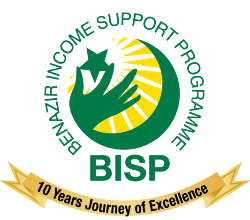The gap between rich and poor is a big problem in any country. Pakistan, which is still growing, faces many money problems because it doesn’t have a lot of resources. Poverty isn’t just about not having enough food; it also means not being able to get medical care, go to school, or find a job. Prime Minister Imran Khan, who leads the PTI party in Pakistan, promised to reduce poverty before the 2018 elections. So, he started some programs like the Ehsaas Kafalat Program to help people.

What is 14000 Ehsaas Kafalat Program?
The Ehsaas Kafalat Program is a social welfare initiative aimed at assisting low-income families for community upliftment. Launched on March 27, 2019, by the government of Pakistan Tehreek-e-Insaf, this program offers a monthly stipend of Rs. 14,000 to 7 million families. Under this program, eligible families receive financial aid to alleviate their economic burdens and promote social well-being.
Ehsaas Kafalat Program Registration Process
To register for the Ehsaas Kafalat Program in April and avail of the Rs. 14,000 stipend, individuals need to follow a simple online registration process. The registration portal can be accessed through the official website, www.ehsaas.nadra.gov.pk. Applicants must ensure their National Socio-Economic Registry (NSER) survey is completed to confirm eligibility.
Also Read: 10 Million New Families Going to Add for Ehsaas 25000 Program
How to Check Eligibility for Ehsaas Kafalat Program?
- Visit the designated web portal (https://8171.pass.gov.pk/TrackingMain.aspx).
- Click on the “Check Eligibility” option.
- Enter your National Identity Card (NIC) number.
- Submit the required information.
- Receive a response indicating eligibility status.
Eligibility Criteria
The Ehsaas Kafalat Program targets individuals facing financial hardships. Eligible candidates include:
- Those living below the poverty line.
- Orphaned individuals.
- Women heads of families.
- Unemployed individuals.
Ineligibility
- Foreign travelers.
- Taxpayers.
- Government employees.
- Car or landowners.
Obtaining Ehsaas Kafalat Card
Qualified individuals can acquire an Ehsaas Kafalat card by visiting the nearest registration center. Necessary documents include:
- Valid CNIC.
- CNICs of family members.
- Mobile SIM card.
- Income details.
Ehsaas Kafalat Beneficiaries
The program aims to assist various vulnerable groups, including:
- Women below the poverty line.
- Widows.
- Orphans.
- Disabled individuals.
- Households with low income.
- Marginalized groups.
Payment Verification
Beneficiaries can verify their payment status online through the official website. By entering their CNIC number, they can check if they are registered under the Ehsaas Kafalat Program.
Withdrawal Process
To withdraw the stipend, beneficiaries can visit their nearest ATM (HBL/Bank Alfalah), select the Ehsaas Kafalat option, and enter their CNIC number. Biometric verification is required for security purposes.
Fingerprint Issues
Individuals facing fingerprint problems can resolve them by following simple steps, including cleaning their hands or using liquid paraffin for better fingerprint recognition.
Complaints and Corrections
For any complaints or corrections related to the program, beneficiaries can utilize the complaint portal (www.complaints.pass.gov.pk) launched by Dr. Sania Nishtar.
Scholarships for Students Through Ehsaas Kafalat
Under the Ehsaas Kafalat Program, scholarships are provided to students from nursery to intermediate levels, with additional bonuses for graduation. Eligible candidates can register at the nearest registration center with the required documents.
Conclusion
In conclusion, the Ehsaas Kafalat Program serves as a beacon of hope for millions of vulnerable families in Pakistan, striving to alleviate poverty and promote social welfare. Through streamlined registration processes and transparent procedures, the program aims to ensure financial inclusion and sustainable development for all citizens.

